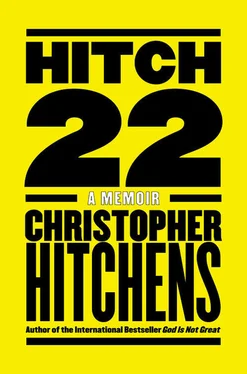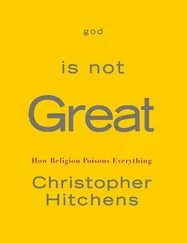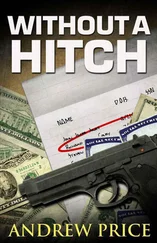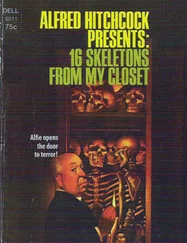I don’t quite remember how old I was before I met anybody who wasn’t concerned with the Navy, or at least with some branch of the armed forces of which ours was always “The Senior Service.” I was christened on a submarine, urinating freely as the reverend made me the first Hitchens to eschew baptism and Judaism and become a member of the more middle-class Church of England. I came to understand the difference between a destroyer and a cruiser and a corvette, and could tell someone’s rank by the number of gold rings worn on the sleeve. When we moved to Malta, it was for the Navy. When we migrated to Scotland, it was to the base at Rosyth, quite near the Dunfermline birthplace of Admiral Cochrane, liberator of Chile and model for Patrick O’Brian’s Jack Aubrey. When we were tranferred again to Plymouth, I went to a boys’ boarding school in the Devonshire town of Tavistock, birthplace of Sir Francis Drake. Every dormitory at the school was named for an admiral who had vanquished England’s (and later Great Britain’s) enemies at sea.
I have mentioned the disagreement between my mother and father as to whether they could afford that school, and I should now give another instance of the ways in which they did not think alike. We were living in the Dartmoor village of Crapstone, a name for which I didn’t much care because it could get me roughed up at school. (“ Where did you say you lived, Hitchens?”) In due time we moved away, but to a village in Sussex called Funtington, which somehow was still not quite the improvement for which I had been quietly hoping.
At all events, at the age of about nine I was listening to a bit of gossip about one of our next-door neighbors, a Marine officer of lugubrious aspect and mien, and his all-enduring wife. “Daphne was telling me,” said my mother to my father about this man, “that his temper is so foul that she’s taken to diluting his gin bottle with water when he’s not looking.” There was a significant pause. “If the woman is watering Nigel’s bloody gin,” said the Commander, “then I’m not surprised that he’s always in a filthy temper.” From this exchange I learned quite a lot about the different manner in which men and women, or at any rate married couples, can reason. I also added to my store of knowledge about the Commander’s attitude to gin, which was a relatively devout one. Alcohol for me has been an aspect of my optimism: the mood caught by Charles Ryder in Brideshead Revisited when he discourses on aspects of the Bacchic and the Dionysian and claims that he at least chooses to drink “in the love of the moment, and the wish to prolong and enhance it.” I dare say some people have seen me the worse for wear in less charming ways, but I know I have been true to the original as well. The Commander was not a happy drinker. He didn’t actually drink all that much, but he imbibed regularly and determinedly, and it was a reinforcement to his pessimism and disappointment, both personal and political.
As I was beginning to say, my entire boyhood was overshadowed by two great subjects, one of them majestic and the other rather less so. The first was the recent (and terribly costly) victory of Britain over the forces of Nazism. The second was the ongoing (and consequent) evacuation by British forces of bases and colonies that we could no longer afford to maintain. This epic and its closure were inscribed in the very scenery around me: Portsmouth and Plymouth had both been savagely blitzed and the scars were still palpable. The term “bomb-site” was a familiar one, used to describe a blackened gap in a street or the empty place where an office or pub used to stand. More than this, though, the drama was inscribed in the circumambient culture. Until I was about thirteen, I thought that all films and all television programs were about the Second World War, with a strong emphasis on the role played in that war by the Royal Navy. I saw Jack Hawkins with his binoculars on the icy bridge in The Cruel Sea : the movie version of a heart-stopping novel about the Battle of the Atlantic by Nicholas Monsarrat that by then I knew almost by heart. The Commander, who had seen action on his ship HMS Jamaica in almost every maritime theater from the Mediterranean to the Pacific, had had an especially arduous and bitter time, escorting convoys to Russia “over the hump” of Scandinavia to Murmansk and Archangel at a time when the Nazis controlled much of the coast and the air, and on the day after Christmas 1943 (“Boxing Day” as the English call it) proudly participating as the Jamaica pressed home for the kill and fired torpedoes through the hull of one of Hitler’s most dangerous warships, the Scharnhorst . Sending a Nazi convoy raider to the bottom is a better day’s work than any I have ever done, and every year on the anniversary the Commander would allow himself one extra tot of Christmas cheer, or possibly two, which nobody begrudged him. (To this day, I observe the occasion myself.)
But he would then become glum, because he had most decidedly not taken the King’s Commission in order to end up running guns to Joseph Stalin (he had loathed the glum, graceless reception he got when his ship docked under the gaze of the Red Navy) and because almost everything since that great Boxing Day had been headed downhill. The Empire and the Navy were being wound up fast, the colors were being struck from Malaya in the East to Cyprus and Malta nearer home, the Senior Service itself was being cut to the bone. When I was born in Portsmouth, my father was on board a ship called the Warrior , anchored in a harbor that had once seen scores of aircraft carriers and great gray battleships pass in review. In Malta there had still been a shimmer or scintilla of greatness to the Navy, but by the time I was old enough to take notice the Commander was putting on his uniform only to go to a “stone frigate”: a non-seagoing dockside office in Plymouth where they calculated things in ledgers. Every morning on the BBC until I was six I would hear the newscaster utter the name “Sir Winston Churchill,” who was then prime minister. There came the day when this stopped, and my childish ears received the strange name “Sir Anthony Eden,” who had finally succeeded the old lion. Within a year or so, Eden had tried to emulate Churchill by invading Egypt at Suez, and pretending that Britain could simultaneously do without the UN and the United States. International and American revenge was swift, and from then on the atmosphere can’t even be described as a “long, withdrawing roar,” since the tide of empire and dominion merely and sadly ebbed.
“We won the war—or did we?” This remark, often accompanied by a meaning and shooting glance and an air of significance, was a staple of conversation between my father and his rather few friends as the decanter went round. Later in life, I am very sorry to say, it helped me to understand the “stab in the back” mentality that had infected so much of German opinion after 1918. You might call it the politics of resentment. These men had borne the heat and burden of the day, but now the only chatter in the press was of cheap and flashy success in commerce; now the colonies and bases were being mortgaged to the Americans (who, as we were invariably told, had come almost lethargically late to the struggle against the Axis); now there were ridiculous, posturing, self-inflated leaders like Kenyatta and Makarios and Nkrumah where only very recently the Union Jack had guaranteed prosperity under law. This grievance was very deeply felt but was also, except in the company of fellow sufferers, rather repressed. The worst thing the Navy did to the Commander was to retire him against his will sometime after Suez, and then and only then to raise the promised pay and pension of those officers who would later join up. This betrayal by the Admiralty was a never-ending source of upset and rancor: the more wartime service and action you had seen, the less of a pension you received. The Commander would write letters to Navy ministers and members of Parliament, and he even joined an association of “on the beach” ex-officers like himself. But one day when, tiring of his plaintiveness, I told him that nothing would change until he and his comrades marched in a phalanx to Buckingham Palace and handed back their uniforms and swords and scabbards and medals, he was quite shocked. “Oh,” he responded. “We couldn’t think of doing that .” Thus did I begin to see, or thought I began to see, how the British Conservatives kept the fierce, irrational loyalty of those whom they exploited. “He’s a Tory,” I was much later to hear of some dogged loyalist, “but he’s got nothing to be Tory about.” My thoughts immediately flew to my father, whose own devoted and brave loyalism had been estimated so cheaply by what I was by then calling the ruling class.
Читать дальше











